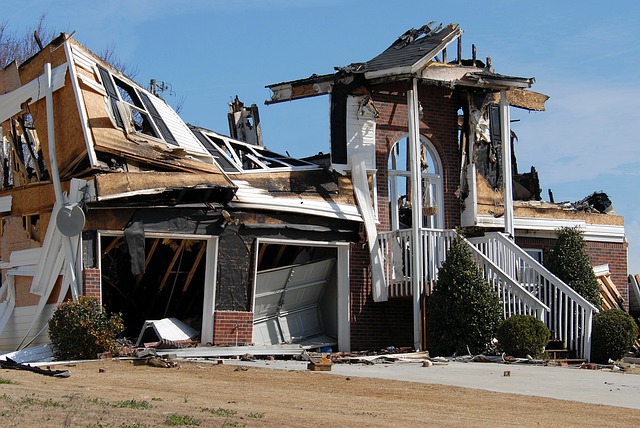Understanding House Insurance: Essential Coverage and Benefits
House insurance, also known as homeowners insurance, is a critical component of financial protection for homeowners. It provides coverage for your home and personal belongings against various risks, such as damage, theft, and liability. Understanding the different types of coverage and the benefits of house insurance can help you make informed decisions to safeguard your most valuable asset.

1. Types of House Insurance Coverage
House insurance policies typically include several types of coverage:
- Dwelling Coverage: This covers the physical structure of your home, including the walls, roof, and foundation, against perils such as fire, windstorms, and hail. It is essential to have sufficient dwelling coverage to rebuild your home if it is completely destroyed.
- Other Structures Coverage: This provides protection for structures on your property that are not attached to your home, such as garages, sheds, and fences.
- Personal Property Coverage: This covers your personal belongings, such as furniture, electronics, and clothing, against risks like theft, fire, and vandalism. It is important to take an inventory of your possessions and ensure you have adequate coverage limits.
- Liability Coverage: This protects you against legal and medical expenses if someone is injured on your property or if you accidentally cause damage to someone else’s property. Liability coverage can help cover legal fees, settlements, and medical bills.
- Loss of Use Coverage: If your home becomes uninhabitable due to a covered peril, this coverage helps pay for additional living expenses, such as hotel stays and restaurant meals, while your home is being repaired or rebuilt.
2. Additional Coverage and Endorsements
In addition to standard coverage, homeowners can purchase additional coverage and endorsements to enhance their house insurance policy:
- Flood Insurance: Standard house insurance policies typically do not cover flood damage. If you live in a flood-prone area, consider purchasing a separate flood insurance policy.
- Earthquake Insurance: Similar to flood damage, earthquake damage is not covered by standard policies. Homeowners in earthquake-prone regions should consider this additional coverage.
- Sewer Backup Coverage: This endorsement covers damage caused by the backup of sewers or drains, which can lead to costly repairs.
- Valuable Personal Property Coverage: For high-value items such as jewelry, art, and collectibles, this endorsement provides additional coverage beyond the limits of standard personal property coverage.
3. Determining Coverage Amounts
To ensure you have adequate house insurance coverage, consider the following steps:
- Assess the Replacement Cost: Determine the cost to rebuild your home from scratch, including materials and labor. This amount should reflect current construction costs and not the market value of your home.
- Inventory Your Personal Belongings: Create a detailed inventory of your personal possessions, including purchase dates, values, and receipts if available. This will help you determine the amount of personal property coverage you need.
- Evaluate Liability Risks: Consider your assets and potential liability risks when choosing liability coverage limits. Higher limits provide greater protection against lawsuits and significant medical expenses.
4. Benefits of House Insurance
House insurance offers several key benefits:
- Financial Protection: House insurance provides financial protection against unexpected events that could result in significant repair or replacement costs. It helps mitigate the financial impact of disasters and theft.
- Peace of Mind: Knowing that your home and belongings are protected can provide peace of mind, allowing you to focus on other important aspects of your life.
- Liability Protection: Liability coverage protects you from legal and financial consequences if someone is injured on your property or if you cause accidental damage to someone else’s property.
- Lender Requirement: If you have a mortgage, your lender will likely require you to carry house insurance to protect their investment in your home.
5. Tips for Choosing House Insurance
When selecting a house insurance policy, consider the following tips:
- Compare Quotes: Obtain quotes from multiple insurance providers to compare coverage options and premiums. Look for a balance between cost and coverage.
- Review Policy Exclusions: Carefully read the policy exclusions to understand what is not covered. Consider purchasing additional endorsements if necessary.
- Check Deductibles: Evaluate the deductibles for different types of coverage. Higher deductibles can lower your premiums but may result in higher out-of-pocket costs in the event of a claim.
- Consider Customer Service: Choose an insurance provider with a good reputation for customer service and claims handling. Read reviews and seek recommendations from friends and family.
Conclusion
House insurance is an essential component of home ownership, providing protection against various risks and liabilities. By understanding the types of coverage, determining adequate coverage amounts, and considering additional endorsements, you can ensure that your home and belongings are well-protected. Regularly reviewing and updating your policy can help you maintain the appropriate level of coverage as your needs change, providing peace of mind and financial security.


